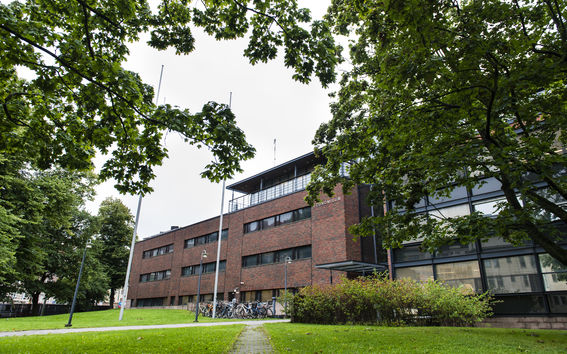Covid-19 vaccines also protect unvaccinated family members

Researchers at the Helsinki Graduate School of Economics have found that the Pfizer-BioNTech and Moderna Covid-19 vaccines protect both vaccinated individuals and their unvaccinated adult household members against SARS-CoV-2 infections. The study, not yet peer-reviewed, used Finnish administrative datasets to examine the link between mRNA-based Covid-19 vaccines and infection risk among vaccinated individuals as well as their unvaccinated family members.
The results show that the indirect protection for unvaccinated family members builds gradually over time. Two weeks after the recipient’s first dose, the spouses of vaccinated individuals showed 8.7% (95% CI: -28.9 to 35.4) fewer cases of coronavirus than the spouses of unvaccinated individuals. Ten weeks after the first dose, the indirect effectiveness of vaccines for family members was up to 42.9% (95% CI: 22.3 to 58.1).
‘Our study clearly shows that the vaccines reduce coronavirus infections in unvaccinated adults living in the same household. The results support the idea that vaccines reduce the risk of both getting infected and infecting others. That being said, it is difficult to evaluate how effectively Covid-19 vaccines stop viral transmission, as only some infections come from family members,’ says Mika Kortelainen, Professor of Health Economics at the University of Turku and Chief Researcher at the VATT Institute for Economic Research.
‘Evaluating the indirect effectiveness of vaccines in a mass vaccination programme is methodologically one of the hardest types of studies to do. We have succeeded in partially answering this question in terms of Covid-19 vaccines by linking several Finnish administrative datasets,’ explains the head of the research group, Academy Research Fellow Lauri Sääksvuori, based at the Finnish Institute for Health and Welfare and the University of Turku.
Finland is known to have comprehensive, high-quality administrative data on its population, making this kind of analysis possible. The study focuses on healthcare workers as they were typically the only ones in their households to get a vaccination against coronavirus in Finland during the study period, January-March 2021.
Governments around the world are hoping to lift Covid-19 restrictions as vaccination coverage increases. At the same time, many under-vaccinated countries and territories have yet to design and initiate their mass vaccination programs. These results provide new information on how vaccines affect infections among the unvaccinated, offering additional insight for decision-makers to design effective vaccination strategies, societal control measures and travel recommendations for vaccinated individuals.
‘We plan to next evaluate the indirect protective effect of Covid-19 vaccines on unvaccinated children in the family,’ says doctoral candidate Jussipekka Salo at the University of Helsinki, who is part of the same research group.
The research is based on work conducted by the health economics group of the Helsinki Graduate School of Economics (GSE) Situation Room, which provides real-time information for decision-makers. The Situation Room consists of leading economists from the Helsinki GSE and VATT Institute for Economic Research. Researchers from the Finnish Institute for Health and Welfare's Infectious Diseases and Vaccinations Unit helped carry out the study.
The study is available in pre-print here:
https://www.medrxiv.org/content/10.1101/2021.05.27.21257896v1
Further information:
Lauri Sääksvuori
Academy Research Fellow
Finnish Institute for Health and Welfare and University of Turku
+ 358 29 5247546
lauri.saaksvuori@thl.fi
Mika Kortelainen
Professor of Health Economics
University of Turku and VATT Institute for Economic Research
+358 50 308 2642
mika.kortelainen@utu.fi
Read more news
Eden Telila's master's thesis contributed to Ramboll's geotechnical toolkit
Geoengineering alum Eden Telila helped Ramboll automate manual tasks.
Doc+ connects research impact with career direction
Doc+ panels have brought together wide audiences in February to discuss doctoral careers and their diversity.
Join a Unite! matchmaking event on forging new consortia for Horizon Europe applications
Calling researchers and industry partners to connect at a virtual matchmaking session designed to spark project collaborations for Horizon Europe funding. Registration deadline, 12 March.






